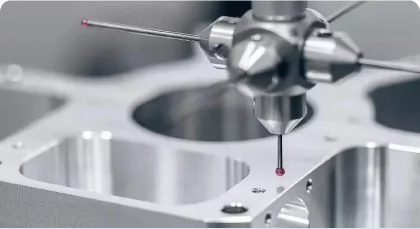Custom Electronics Housing Prototyping and Manufacturing Solutions
In today’s rapidly evolving electronics industry, speed, precision, and innovation are crucial — especially when it comes to developing durable and functional product enclosures. Whether for consumer gadgets, industrial control systems, or medical devices, the demand for custom electronics housing prototyping and manufacturing continues to grow. At Alpha-Mold, we offer end-to-end solutions for designing and producing high-quality electronic enclosures with unmatched precision and reliability.
Why Electronics Housing Prototyping Matters
Before mass production begins, having a high-fidelity prototype of your electronics housing is essential for evaluating fit, function, thermal management, and design aesthetics. Prototyping helps engineers test for component placement, cable routing, mounting features, and ease of assembly — all critical factors in the success of your final product.
Alpha-Mold provides rapid electronics enclosure prototyping services in China for startups and OEMs alike. With our state-of-the-art facilities, we help you validate your design before investing in costly tooling or committing to large-scale production.
Our Capabilities in Electronics Housing Manufacturing
From initial concept to final production, Alpha-Mold covers every aspect of electronics housing manufacturing. Our capabilities include:
CNC machining for metal and plastic housings
Rapid injection molding for enclosure prototyping
3D printing of functional enclosure models
Custom aluminum and polycarbonate enclosures
Finishing services like powder coating, anodizing, painting, and EMI shielding
Assembly-ready enclosures with integrated mounting features
We handle both low-volume prototyping and high-volume production with consistency and attention to detail.
Applications We Serve
Alpha-Mold’s electronics housing solutions are used across a wide range of industries, including:
Consumer electronics
Industrial automation systems
IoT devices and smart home products
Automotive electronics
Medical diagnostic devices
Telecommunications equipment
We understand the regulatory requirements (such as IP ratings, thermal dissipation, and EMI shielding) that many electronics housings must meet and help our clients design accordingly.
Advantages of Partnering with Alpha-Mold
As a leading electronics housing prototyping manufacturer in China, Alpha-Mold delivers high-value advantages to our clients:
Fast turnaround times for prototypes and production runs
Precision tolerances for tight-fitting components
Material flexibility, including ABS, PC, PA6, aluminum, stainless steel, and more
Cost-effective manufacturing with global shipping support
Collaborative engineering support for design optimization
Whether you’re refining an early prototype or scaling up for launch, we have the tools and experience to support your product’s success.
Contact Alpha-Mold Today
If you're searching for a reliable partner for custom electronics housing prototyping and manufacturing, look no further than Alpha-Mold. We take your concept and turn it into a functional, production-ready enclosure.








